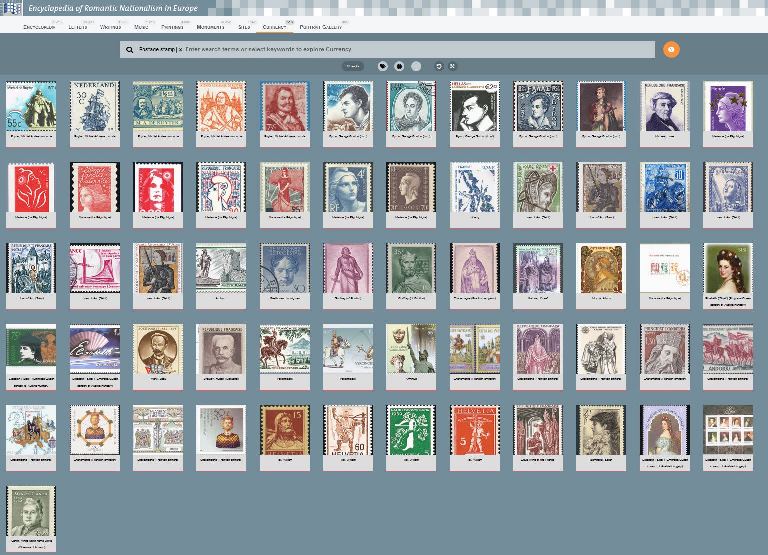ERNiE website now adding postage stamps

Postage stamps are the ultimate form of “banal nationalism”. Spread in great variety and in huge numbers, they imprinted a national brand on all written communication throughout the 20th century. The European corpus of nationally-branded postage stamps is far too huge to admit full coverage within ERNiE, but a selection will be given under the rubric “CURRENCY”. That rubric used to contain only banknotes but now also accommodates postage stamps; the search bar allows users to choose between the two.
The metadata are hyperlinked and clickable, allowing users to explore the connections to different cultural media. As always, the “label” icon above the samples brings up a searchable/sortable checklist.
The interest of postage stamps for SPIN is threefold.
- Intermediality. The imagery often remediates earlier cultural products (statues or paintings).
- Historicism. Stamps frequently recall historical events and figures, and they are often issued to mark commemorative events.
- “Banality”. Stamps represent the final 20th-century stage of a cultural diffusion process, spreading national icons from earlier (19th-century) cultural media with a more limited geographic or social outreach to a medium that is truly all-pervasive. As such they represent a powerful afterlife of 19th-century cultural nationalism in unobtrusive form.
In building up a repertory, SPIN will limit itself to state-issued stamps used in the national postal service, and will prioritize stamps with portraits of nationally iconic figures, excluding reigning monarchs. As always, suggestions and collaboration will be gratefully welcomed.